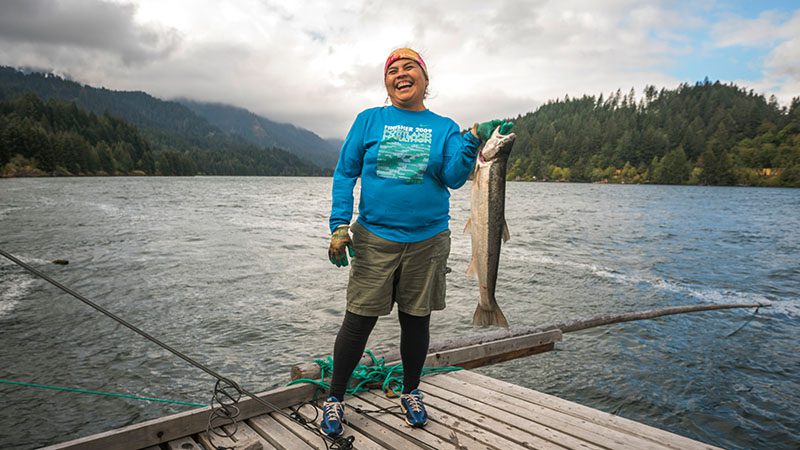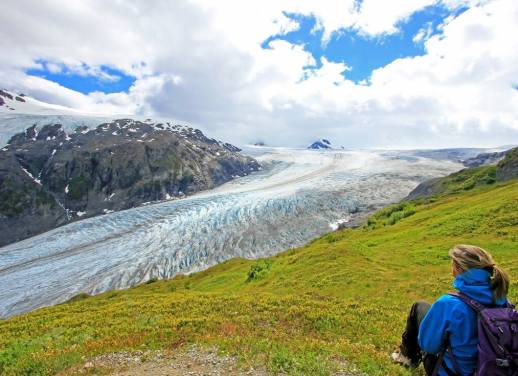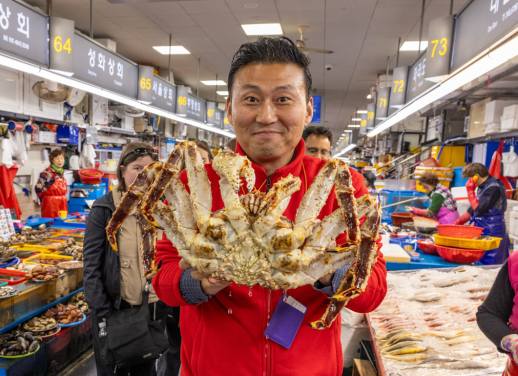Travel is about something much deeper than ticking destinations off a bucket list. It’s an opportunity to connect with a living culture and meet those who keep Native American traditions alive.
Brigette McConville grew up in a fishing family on the Columbia River, served as a Columbia River Inter-tribal Fish Commissioner and was her tribe’s anthropologist for 20 years. Nearly 11 years ago, she decided to do something different.
When the Confederated Tribes of Warm Springs asked her to open a shop as part of her tribe’s new casino development, McConville used her knowledge of anthropology and her peoples’ history to create a business that not only became her passion, but also connected others to the Columbia River’s natural landscape and her tribe’s heritage.
“The two biggest trade items on the Columbia River historically were beads and fish. People brought their items they made to trade for fish from the families who fished,” says McConville.
The Columbia River is one of North America’s largest rivers, winding its way through seven states and one Canadian province. For the Confederated Tribes of Warm Springs, it is the sound of home; a place that is wild and strong and has served as a primary food source for local tribes for thousands of years.
Brigette McConville had fished in the Columbia River since she was a little girl and been a weaver and beader for more than 45 years. The store she opened, Salmon King Fisheries, combined two of her greatest passions, fishing and beading, and also allowed her to share her history and culture with others.
DISCOVER THE BEST OF THE PACIFIC NORTH WEST
Salmon King Fisheries sells local fish and has an adjoining store stocked with locally made Native American crafts such as wearable art, beadwork and basketry. Beadwork and basket making classes are also available. It is the only Native-woman owned fish business on a reservation with a retail store.
When McConville started out, her grandma was instrumental in helping to design Salmon King Fisheries and what she was going to offer, insisting she should “do one thing right” and build on her success. Now, almost 11 years later, she has 28 products and honours her grandma’s legacy as a natural teacher.
“She was my best person in the world. Born before any of the dams on the Columbia River, back when it was free flowing. She was so knowledgeable. Learning was an everyday experience for me. It wasn’t that we sat down in a classroom to learn the typical way. Just spending time and learning and watching.”
Brigette McConville and the Confederated Tribes of Warm Springs define themselves as Salmon People and see the fish caught from the Columbia River as an important piece of tribal history that connects past and present generations. Like her grandmother who came before her, McConville is passionate and generous when it comes to sharing her tribal history and knowledge of Native American culture.
On Intrepid’s Best of Pacific North West and Portland to San Francisco Discovery tours, Brigette McConville joins the group for a Native American River to Table dining experience. While the food itself is a key element of this sustainable cultural tourism experience, not to mention delicious, the lunch goes way beyond simply sitting down together to enjoy a meal.
“We find out what type of fish they want and gather resources locally, from farms, and have a history lesson of where that food comes from as we lay it out,” says McConville. “We explain where the food comes from while we’re cooking, and talk about how the food travels, how we get the foods grown, how the fish is caught, explaining everything to them, and history of the trade network. Sometimes we’ve had people come in and sing traditional songs or [do some] dancing before people enjoy their meal.”
The lunch acknowledges the role salmon has played in tribal history and celebrates the joy of travel. It embodies a spirit of discovery; making connections with others; immersing yourself in a destination and celebrating a living culture that is different to your own. Brigette McConville’s enthusiasm for what she does shines through when she talks about sharing her River to Table experience with travellers.
“They’re able to experience part of my culture firsthand with all the senses. See it, feel it, taste it, touch it. With that sensory experience, they take a lot more away than just watching a video or reading a book or ordering something off the menu. They get to know why, or where, or how that fish was caught.”
HOW TO TRAVEL FROM PORTLAND TO SAN FRANCISCO
A day in the life of a Fisherwoman isn’t always easy. Sometimes the winds can be bitterly cold. At other times it may be snowing. But Native Americans along the Columbia River have been fishing for salmon for thousands of years and see the fish as an important gift of food from the Creator.
“When we are out there, we always give thanks and have a prayer and are thankful for being able to fish and to the water.”
Spring salmon are at their reddest and most nutritious with the most oil. McConville explains how her people clean the fish on the river, passing the fish from hand to hand to keep them in the water. It’s a fishing tradition that has been passed down from generation to generation.
“You get tired, but I love the fresh air, the wind. Sometimes you hear the water ripple. It’s serene and very comfortable. Being able to share why I fish and why I work with fish makes my heart happy.”




